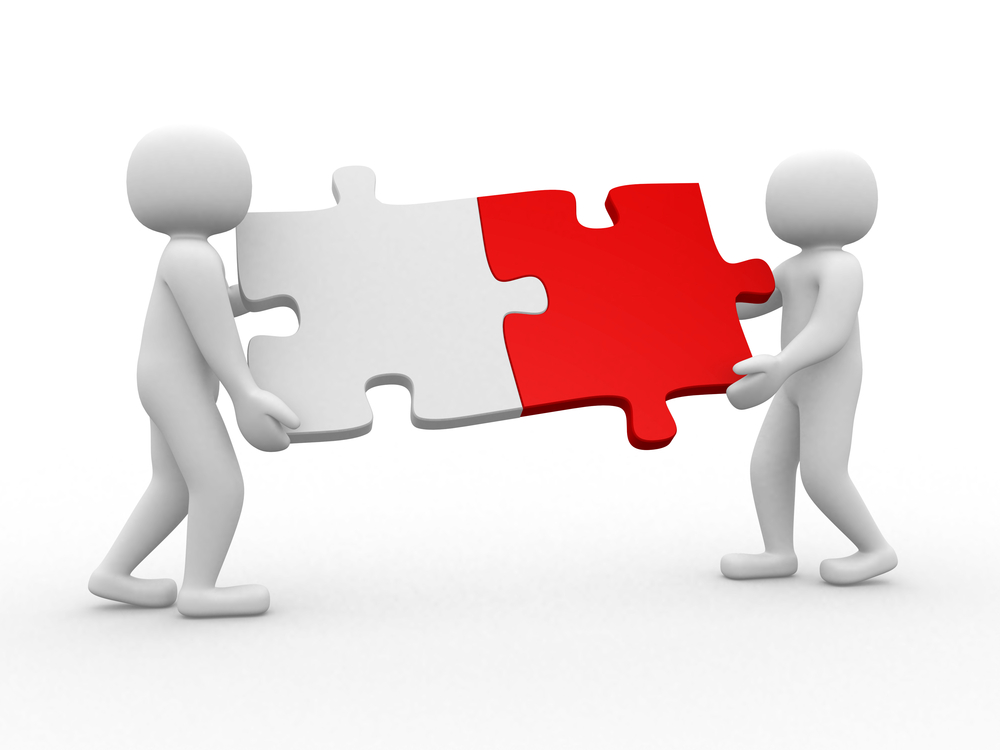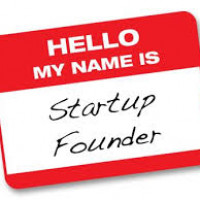
Image via Bplans
Most articles about “finding the perfect cofounder” sound the same
They’ll tell you where to look to find cofounders, they’ll talk about finding experience that fill in gaps in the team and they’ll teach you how to convince someone to become a cofounder.
This article won’t talk about any of that.
I actually don’t think that’s a very smart approach. If you need specific experience or skillsets, then hire for that or just figure out a way to make it happen.
A cofounder is someone who will be your partner, at your side, through the toughest times you’ll ever face in your career. They’ll be there to pull you through when you’re depressed and you’ll do the same for them. A cofounder is a deep and complicated relationship that you can’t just manufacture.
See, I’m one of the more fortunate entrepreneurs around. I found someone who I truly believe to be my perfect cofounder.
I don’t throw that out claim out lightly. I’ve had different cofounders, partners and teammates. I’ve given it a great deal of thought, worked through phases of hopes and doubts and some time ago came to the clear realization that I’m extremely fortunate to get to work with someone like Nadia.
I can honestly say, without Nadia, I never would have been able to make it this far as an individual and as an entrepreneur. Feast definitely wouldn’t have made it this far, no doubt in my mind there.
Here’s what I think you actually need to look for in a cofounder:
1. You understand each other’s motivations and genuinely want each other to succeed
It’s so important that you know what your cofounders goals are, both personally and professionally. That doesn’t mean that you have the same goals, but by understanding their motivations you can have better context around their decisions, frustrations and work on a direction that’s mutually beneficial.
You have to want each other to succeed. Whatever it is the other person wants to learn and achieve, as a cofounder it’s your responsibility to help them get there.
If you can’t or don’t want to, it won’t work.
Even worse, if you get competitive and feel like in order for you to succeed, your cofounder has to fail or succeed less, you’re doomed.
Your vision for the company should also be aligned. When you know that you both have the same goal, to solve the same problem in the world, that will guide every decision you make and keep you on the same page.
2. You can be brutally, radically honest with each other when you don’t like something
In the early days of Feast I remember it wasn’t always so easy to be totally honest. Nadia and I were still learning how to work together and I felt like I had to tread carefully so that I wouldn’t offend her.
Today, it’s very different. There’s nothing I can’t say to Nadia. Communication is always about being tactful in how you criticize or give feedback. But as trust between cofounders grow, the pressure to word your thoughts perfectly starts to fade away. If we don’t like something or something just doesn’t feel right, we say it right away.
I’d actually be much more offended if Nadia decided not to express her true feelings about something. The best part is that whenever we do share our honest opinions, we often find that we both felt that same way deep down and our product becomes better as a result.
3. You have unique and complimentary approaches to problems
Nadia and I think very differently about solving problems. I think of everything in terms of people, community and often think really big picture. Nadia likes to get down and dirty in the data and is the master of spreadsheets. As a result, she loves doing the things I would rather not do, and vice versa.
Keep in mind that I’m not talking about skillsets (though this can result in complimentary skillsets). Both Nadia and I have had to take on a whole lot of different roles and projects. We’ve both learned completely new skills when the job calls for it. But it’s almost always clear who’s the right person to take it on just because of where our brains like to spend time.
4. You can be vulnerable and confide in each other
We’ve both let our emotions loose. We’ve both broken down. There have been tears and deep meaningful conversations. We’ve shared our feelings with each other on a level that I’ve only shared with my girlfriend of 5+ years.
Starting a company is extremely mentally and emotionally challenging. I know you probably hear that a lot but I can’t possible write these words well enough to make you understand how true it is.
Having someone at your side that you can count on to be there for you when you need it, who completely understands where you’re coming from because they’re going through it with you…it’s invaluable. I have no idea how single founders make it without this.
5. You can spend time together without focusing on work
Nadia and I were roommates before we were cofounders. When I moved to SF, I applied for a room on Craigslist at her apartment where she was living with another girl and a guy. They were foolish enough to accept me!
Nadia and I quickly became good friends and spent a lot of time hanging out with each other in the living room, debating, drinking, playing games and all that other good stuff roommates do together.
I’m really grateful for those times because I feel like whenever we need it, Nadia and I can go back to that. We can take off our work hats and just hang out as friends. It adds another level to our relationship that goes a long way to keeping us sane.
6. Unwavering trust
This serves as the foundation for a lot of the previous concepts I wrote about here.
I don’t know about you, but I’ve had a whole lot of work relationships that weren’t built on trust.
It sucks.
You question each other’s commitment and abilities, you get suspicious of each other and you start to think that dangerous mantra “if you want something done right you have to do it yourself”.
You have to be able to trust your cofounder unconditionally. It’s natural to have doubts sometimes, but when you do you can lean on that trust to remind you that your doubts are actually irrational and that everything is fine.
7. Telepathy
Ok, maybe you can’t actually communicate using brain waves, but sometimes it might feel that way.
When you have the first six things I listed here, you and your cofounder should know each other so well that you actually know what they’ll think about most situations before they say a word.
Nadia and I are so on the same page that it’s scary sometimes. We know how the other person will respond to an email from a customer before they do it. We leave a meeting and laugh at all the things that were running through both of our minds at the same time the whole time we sat there.
These are the things that are ACTUALLY important when choosing a cofounder.
The tough news is that ALL of these are things that you can only learn with experience. You won’t know any of these things when you first meet someone.
My best advice is to go with your gut. If you feel like there’s the potential for these dynamics to exist between you, then give it a shot. If it’s clearly never going to reach this point then maybe you should shake hands and go your separate ways.
Don’t shop around for a cofounder like you’re buying a new car, just looking for the right price and features.
Your best shot is to work with someone that you already know well.
This is why it’s incredibly important to treat every people you meet with love and respect. When you network, don’t just collect email addresses, build trust.
You never know where a relationship can grow and lead to a beautiful partnership.
________________
Be sure to check out David’s other posts:
- 7 Reasons Why You Shouldn’t Fear Your Food Startup’s Competitors
- 7 Signs Your Food Startup Is Fundraising Too Early
- 11 Insights on Building a Startup
- Your Product is Bullshit and You’re Going to Fail if You Don’t Ask Users to Pay
- 7 Tips for Getting the Most Out of Your Startup Accelerator Program
And our posts on the Feast’s business model and lessons learned:





